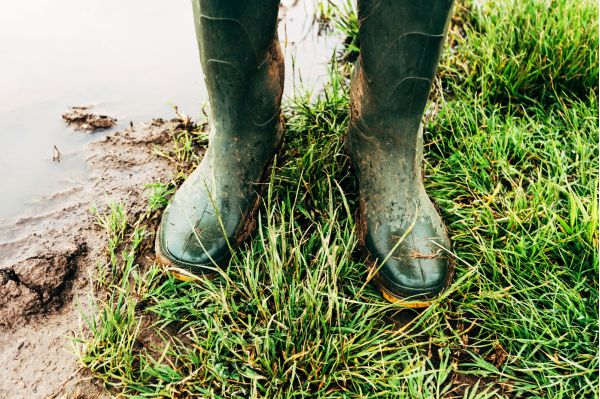
Be ready to weather the storm

The Department of Business, Enterprise and Innovation has developed a practical checklist for farms, which outlines key issues to address when planning for, and responding to, severe weather events this winter.
The more significant issues involve planning for:
- Provision of feed and water to livestock;
- Delivery of feed to farms and the transport of products from farms;
- Freezing of water pipes to sheds and outdoor water troughs;
- Freezing of milking machines and other equipment in milking parlours;
- Freezing of coolant and diesel in tractors;
- Damage to forage crops being grazed in-situ or stored in farmyards; and
- Personal risks of working and driving during severe weather conditions such as ice.
Storm Babet
October’s Storm Babet saw parts of the country battered by wind and torrential rain. According to Met Éireann (on October 20) much of the country was wetter than average. Accumulations largely ranged between 133 per cent and 431 per cent of average. The wettest conditions were in the south, with 133.6mm recorded at Cork Airport over the previous seven days. Well-drained soils were saturated, while most moderately and poorly drained soils were waterlogged.
The Irish Farmers Association (IFA) reported that many farmers faced increased operational pressures to rehouse stock in drier locations and to deal with fodder stocks under water/destroyed. IFA president Tim Cullinan added: “The floods and heavy rainfall also effectively put an end to the salvage effort that was harvest 2023. There will be crops around the country that simply won’t be harvested this year. What has been collected has largely been of lower quality in many parts, meaning little or no returns for cereal growers. Increased targeted interventions are needed,” he said. According to the Government’s advice on flooding, scientists are predicting that climate change may lead to more of this level of flooding. We all, especially farmers, must be mindful of the risks to safety when dealing with flood waters.
According to the publication, Be Winter-Ready Guidance on Flooding, flooding can result in injury and loss of life. “Just 150mm of fast-flowing water can knock a person off their feet. As little as 300mm of fast-flowing water can move most cars off the road. Flood water can move manhole and drain covers, creating invisible dangers. Electric currents can pass through flood water from fallen power lines and cables.”
The booklet advises that businesses in an area at risk of flooding should consider developing a flood plan so that all workers know what to do in the event of a flood:
- Develop a flood plan as part of your health and safety strategy and practice evacuation drills.
- Ensure that cut-off points for gas, electricity and water are marked on a map that is stored with the flood plan.
- Have a list of emergency numbers readily available including contacts for utility and telephone providers.
- Be aware of the location of chemicals, oils or other materials that could be dangerous or contaminate flood water. These should be stored safe from floods and other hazards.
- Consider the possibility of moving key operations to an alternative premises should it be necessary.
- On the farm, you should consider how to manage livestock in the event of a flood.
- Identify people who can help before, during and after a flood.
For more information visit https://www.gov.ie/en/publication/9e1358-preparing-your-business-for-severe-weather-stay-winter-ready/.





